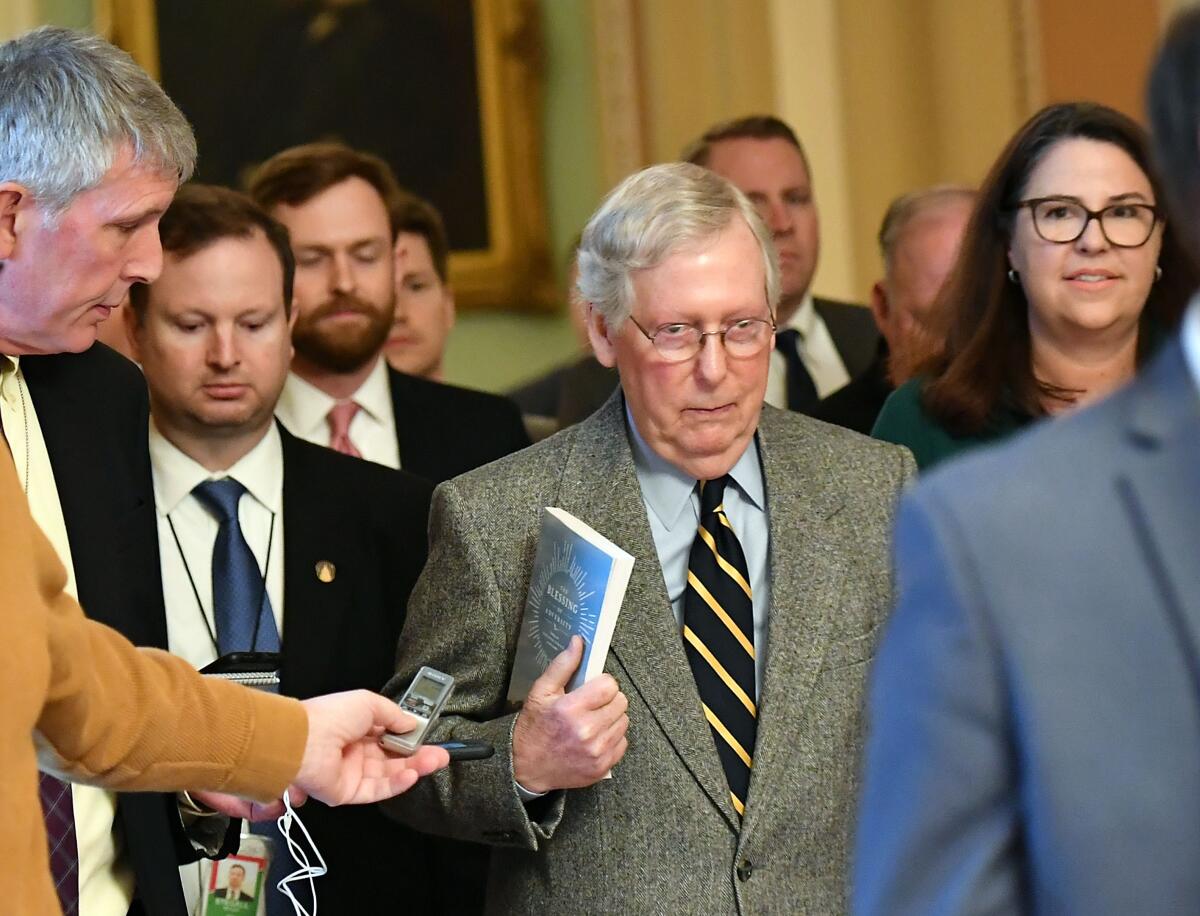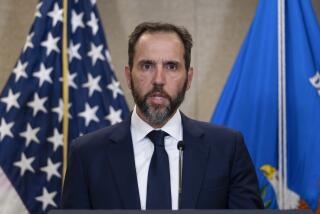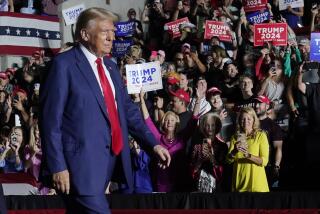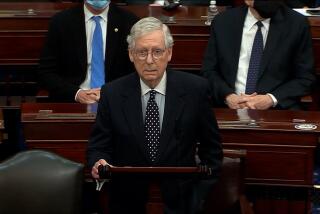Opinion: Will Mitch McConnell actually let the Senate sink its teeth into Trump’s impeachment?

After weeks of dithering over process, the Senate will begin to play its role in the impeachment of President Trump. Senate Majority Leader Mitch McConnell said Tuesday that the chamber would begin trying Trump next week, starting with a debate over the trial’s rules. That means we will soon see lawmakers actually confront the question that’s at the heart of the issue: Were the president’s actions in regard to Ukraine so bad that he should be removed from office?
There are two elements to this question, each of which is important. Although the House impeached Trump, that’s the congressional equivalent of a grand jury bringing an indictment. The Senate plays the role of the jury, with House members presenting the case against Trump as well as his defense. As a result, the first answer the Senate must deliver is whether Trump did what the House accused him of doing.
Senate Majority Leader Mitch McConnell (R-Ky.), a boss-level political tactician, wants you to think of the House as if it were a criminal prosecutor and Trump as if he were a defendant. He has resisted the idea of the Senate conducting its own fact-finding, arguing that the burden of proof rests entirely on the House.
As McConnell put it Tuesday morning, “If the existing case is strong, there’s no need for the judge and the jury to reopen the investigation. If the existing case is weak, House Democrats should not have impeached in the first place.”
That conveniently ignores the second article of impeachment, which accuses Trump of obstructing the impeachment inquiry by instructing federal agencies not to turn over documents and administration officials (even former ones) not to testify. If the Senate embraces McConnell’s logic, any president accused of impeachable offenses in the latter part of the term can simply do as Trump did: Deny, deny, deny and hope the clock runs out before the courts force the administration to comply with congressional subpoenas.
But even if Republicans block every attempt to call witnesses who had a front-row seat on the Ukraine imbroglio, there’s enough evidence already in the record to establish the central facts of the case. It’s undisputed that Trump asked Ukraine’s new president to investigate a top Democratic presidential contender, former Vice President Joe Biden, and to help with a second investigation aimed at denying Russia’s role in hacking Democratic National Committee computers in 2016. There’s also a mountain of testimony about efforts by Trump appointees and his personal lawyer, former New York Mayor Rudy Giuliani, to pressure Ukraine to announce those investigations publicly. And there are the letters and statements from administration officials declaring that they would not cooperate with the impeachment inquiry because they consider it improper.
So again, the threshold question raised by the first article of impeachment is this: Is it an abuse of power to use the presidency to try to persuade a foreign government to help win reelection? The witnesses Senate Democrats want to call could strengthen the argument that Trump held up the security aid Ukraine badly needed to put more pressure on that country to conduct the investigations he sought. But House Republicans contended that there was no abuse of power because Ukraine didn’t deliver the favors requested, and Trump ultimately released the security aid. In other words, whatever Trump did, it didn’t work. That’s a way to excuse bad actions simply because they’re poorly executed.
Similarly, the threshold question raised by the second article is whether an administration can flatly defy subpoenas issued in an impeachment inquiry. House Republicans argued that the subpoenas raised questions of executive privilege, and Democrats should have tried to address those concerns through negotiations. But the White House didn’t offer to negotiate; White House Counsel Pat Cipollone’s letter in response to the subpoenas simply declares there will be no cooperation unless Democrats agreed to play by the rules he lays out. This is as pure a power struggle as you’ll see in Washington.
Only after you get past those threshold questions do you get to the second element here, which is whether what Trump did warrants his exile from the White House and a permanent ban on him holding office. Some Senate Republicans who’ve expressed misgivings about Trump seeking a Ukrainian investigation into Biden (a former senator who’s well liked in that chamber) have also suggested that, as presidential offenses go, Trump’s wasn’t that serious. Would they still make that argument, though, if former National Security Advisor John Bolton or acting White House chief of staff testified that the president tried to use U.S. military aid as leverage to help him in the 2020 election?
Convicting Trump will take a two-thirds vote of the Senate, which means that even if all Democrats and independents vote to remove the president, he’ll remain in office unless at least 20 Republicans turn against him. Those are long odds, and if McConnell has his way on witnesses, they’ll stay long.
More to Read
A cure for the common opinion
Get thought-provoking perspectives with our weekly newsletter.
You may occasionally receive promotional content from the Los Angeles Times.






